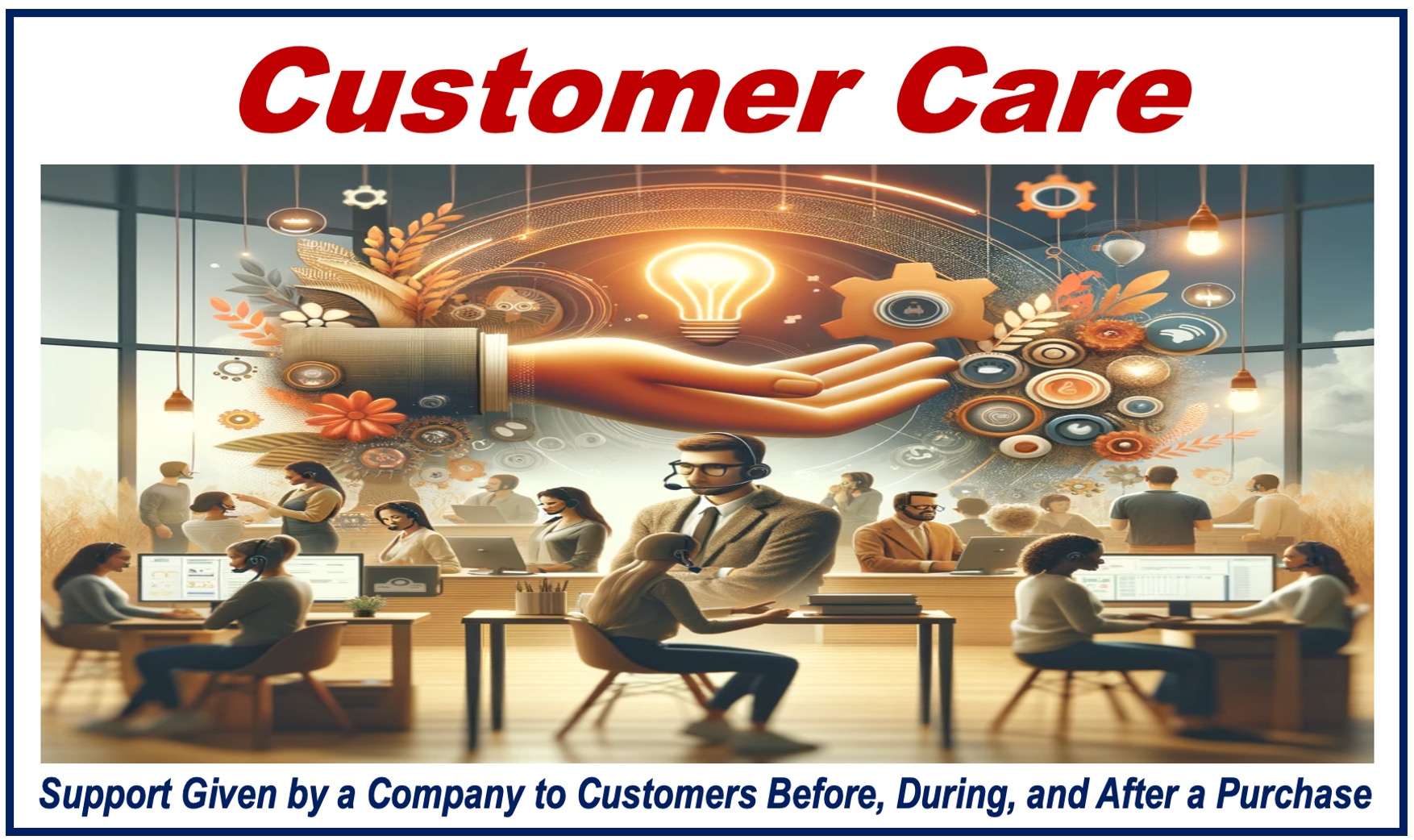Customer Care, an important aspect of customer service, describes how consumers are treated when they interact with a brand. The term refers to all the experiences a person has with the company and its staff before, during, and after a purchase.
In today’s fiercely competitive marketplace, where things move rapidly and options for the consumer are plentiful, customer care stands out as a crucial element that can set a business apart from its rivals.
Essentially, customer care is about providing timely, attentive, and helpful service to customers and prospects. A prospect is a consumer who you believe has a good chance of turning into a paying customer.
Customer care is the support a seller offers to make sure that its products or services meet or exceed customer expectations. This concept goes beyond simply resolving queries, issues, and complaints, it extends to every interaction a company has with its customers. The aim is to make their experience as seamless and positive as possible.
IBM, an American multinational technology company, says the following about the term “customer care”:
“Customer care is more than just providing great customer service. It’s a proactive approach to providing information, tools, and services to customers at each point they interact with a brand. When done well, customer care boosts the overall customer experience by providing answers to common questions through the website, social media, chatbots, or with customer support agents.”
Customer care vs. customer support
Customer care is proactive. It anticipates the needs and preferences of the customer, making them feel supported. Customer support is reactive. Here, the focus is on helping people solve problems.
Together, they both create a positive customer experience.

Why does customer care matter?
Customer care has a direct impact on a company’s bottom line and reputation. In this context, the term “bottom line” refers to company profits.
Excellent customer care typically leads to higher satisfaction rates, which in turn leads to greater customer loyalty.
Loyal customers are much more likely to make repeat purchases and recommend the product, business, or brand to other people, which helps boost sales and growth.
Conversely, poor customer care can put off prospects and drive away existing customers.
How to improve customer engagement
There are several strategies you can adopt to improve your company’s customer care. Let’s have a look at some of them:
-
Needs and expectations
Understanding customer needs and expectations is fundamental. You can achieve this through feedback surveys, social media engagement, direct communication, analytics tracking, focus group discussions, and customer service interactions.
-
Training
Training your people in effective communication and problem-solving skills can make a big difference in how your customers and prospects view your company.
Employees should be properly equipped to handle inquiries, complaints, and other interactions efficiently, showing empathy, and a genuine desire to assist.
-
Technology
Leverage technology can help you interact most effectively with customers. Customer Relationship Management (CRM) systems, for example, can help your business track customer interactions, streamline service processes, and personalize customer experience.
With the rapid advance in artificial intelligence (AI) and machine learning over the past few years, chatbots today can contribute significantly to customer care. A chatbot is a software program that interacts with people as if it were another human.
-
Feedback Loop
Create a feedback loop for continuous improvement. Regularly collect and analyze customer feedback, then adjust your services or products accordingly. This shows customers their input matters and improves your offerings.
-
Personalization
Use personalization to enhance customer care. Tailor communication and services to individual preferences and histories, improving satisfaction and loyalty. Utilize data analytics for more relevant customer experiences.
Benefits of customer care
The benefits of investing in customer care are extensive.
- Customer benefits
For customers, it means receiving reliable support and feeling valued. It also means having a positive experience with your business.
As customers, it is nice to deal with a company that produces good quality products or services, cares about us, and makes us feel good.
- Benefits for the business
You will have something that makes your company stand out from your competitors in the marketplace.
Some of your customers will recommend your company to friends, family, and colleagues. Positive word-of-mouth marketing helps boost sales.
Conclusion
Customer care is more than just a department within a company. It is a mindset that should permeate every level of your organization.
By prioritizing customer care, your business can foster a loyal customer base. In a world of endless choices, exceptional customer care can be the deciding factor that draws customers and keeps them coming back.
